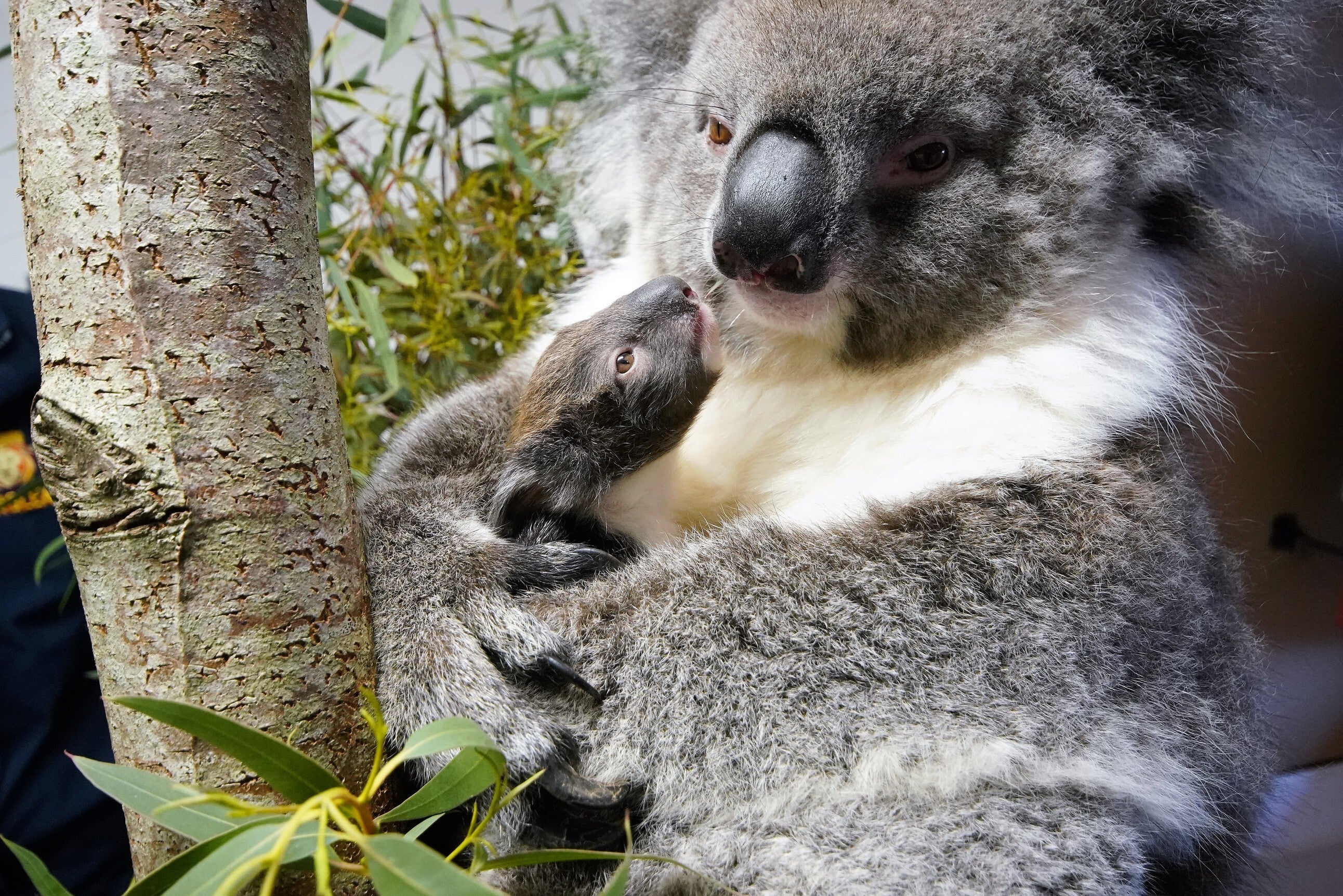British safari park welcomes first southern koala to be born in Europe
The unnamed baby koala will be making its first public appearance at Longleat safari park in Wiltshire over the coming days.

Your support helps us to tell the story
From reproductive rights to climate change to Big Tech, The Independent is on the ground when the story is developing. Whether it's investigating the financials of Elon Musk's pro-Trump PAC or producing our latest documentary, 'The A Word', which shines a light on the American women fighting for reproductive rights, we know how important it is to parse out the facts from the messaging.
At such a critical moment in US history, we need reporters on the ground. Your donation allows us to keep sending journalists to speak to both sides of the story.
The Independent is trusted by Americans across the entire political spectrum. And unlike many other quality news outlets, we choose not to lock Americans out of our reporting and analysis with paywalls. We believe quality journalism should be available to everyone, paid for by those who can afford it.
Your support makes all the difference.A British safari park has celebrated a “major achievement” after welcoming the first southern koala to be born in Europe
The unnamed baby koala, known as a joey, will be making its first public appearance at Longleat safari park in Wiltshire this week.
The park’s adult female koala, called Violet, gave birth last year but her tiny baby – born the size of a jelly bean – spent six months tucked in its mother’s pouch for safety.
Koala pregnancies only last around a month and the babies are born blind and hairless.
Within minutes of birth, the joey is able to find its way into its mother’s pouch, where it remains for the first six months of its life, and remains dependent on its mother until around one year old.
The southern koala, which is one of the two main subspecies of the animal, has much thicker fur and can weigh twice as much as their northern relatives.
“It has been a long and complicated process, but this birth is really important for a number of reasons,” said koala keeper James Dennis.
“As well as helping to raise awareness of the southern koala and the threats it faces in the wild, it is also teaching us so much about the species’ complex lifecycle.
“One of the most concerning issues with regard to southern koalas in Australia is the high levels of inbreeding and so the fact we are able to begin establishing a genetically diverse population here in Europe is also really important.”
Longleat opened its purpose-built koala facility in 2019 and the enclosure includes a natural stream, eucalyptus trees, climbing poles, a mix of indoor and outdoor habitats, viewing areas and a medical care unit.
A plantation of eucalyptus trees has also been established on the estate to provide the koalas with a regular supply of leaves, the only thing the marsupials will eat.
The facility is part of a joint initiative with the Government of South Australia and Cleland Wildlife Park to support research and raise funds for koala management and conservation.
In the aftermath of the bushfires in 2020, Longleat keepers travelled out to South Australia to help with the recovery programme and the park donated over £50,000 to support koala conservation.
The chairman of conservation organisation Koala Life, Professor Chris Daniels, from the University of South Australia, said: “The breeding of the first southern koala born in Europe represents the culmination of this fantastic partnership to better understand and protect koalas.
“This joey represents a small but vital step in the process to secure the long-term survival of one of the world’s most loved animals. A major achievement.”
Subscribe to Independent Premium to bookmark this article
Want to bookmark your favourite articles and stories to read or reference later? Start your Independent Premium subscription today.